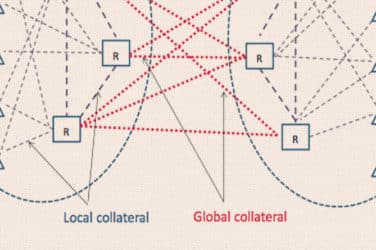Americas Will Continue to Dominate the Global Algorithmic Trading Market Until 2020, Says Technavio
07.11.2016BUSINESS WIRE – London – The global algorithmic trading market is expected grow at a CAGR of more than 10% during the forecast period, according to Technavio’s latest report.
In this report, Technavio covers the market outlook and growth prospects of the global algorithmic trading market for 2016-2020. To calculate the market size, the report considers the net commission earned from algorithmic trading platform providers in the Americas, APAC, and EMEA.
Technavio’s research study segments the global algorithmic trading market into the following regions:
- Americas
- EMEA
- APAC
Americas: largest algorithmic trading market
With a massive 75% market share in 2015, the algorithmic trading market in the Americas led the global market. Technavio predict the market to post an impressive CAGR of over 10% during the forecast period.
Foreign exchange (FX) trading activity rose by 30% between April 2015 and October 2015 in the Americas. This rise is attributed to continuous trade monitoring and surveillance in the FX spot market in the region. The tightening of regulatory scrutiny of top vendors was needed due to the recent collusion and benchmark manipulations. Therefore, a rise in the number of trading firms that will reveal the real-time record of trading activities is expected during the forecast period.
Amit Sharma, one of the lead analyst at Technavio, says, “Sell-side dealers are expected to play a significant role during the forecast period. This will increase the auditable standards in trading and bring in easy communication between traders.”
Ask for a sample of this report: http://goo.gl/WoCCpt
Global algorithmic trading market in EMEA
The algorithmic trading market in EMEA was valued at USD 3.38 billion in 2015, and is anticipated to reach USD 5.34 billion by 2020, growing at a CAGR of 9.53%.
The FX segment in Europe has been facing a turmoil since the beginning of 2014. In October 2015, the market in the region saw a 30% rise in the value of the Swiss franc, whereas the Russian ruble fell by 40% against the USD in the currency benchmarks. This volatility in the European market has forced many hedge funds to shut down following heavy losses. The recent volatility was triggered by a divide between the US Federal Reserve on the one hand and the Bank of Japan and the European Central Bank on the other. The Federal Reserve stopped its quantitative easing (QE) program in 2015 and may tighten monetary policy by the end of 2016. Meanwhile, the Bank of Japan is still pursuing QE in 2015, and the European Central Bank is working to start the process of buying bonds. This divergence in monetary policies has driven the USD higher against both yen and euro.
Global algorithmic trading market in APAC
The algorithmic trading market in APAC was valued at USD 506.7 million in 2015, and is expected to reach USD 874.6 million by 2020, growing at a CAGR of 11.54%.
The financial market plays a critical role as it supports a country’s growth by effectively steering capital toward productive investments, offering wealth accumulation opportunities to investors and increasing the overall stability by diversifying sources of financing. “One such initiative is financial deepening, which widens the funding access, diversifies investment options, improves market infrastructure, and provides risk-management solutions. Therefore, a prerequisite for macroeconomic growth and prosperity is efficient and deep financial markets,” adds Amit.
The top vendors in the global algorithmic trading market highlighted in the report are:
- Citadel
- KCG
- Optiver
- Tower Research Capital
- Two Sigma Investments





